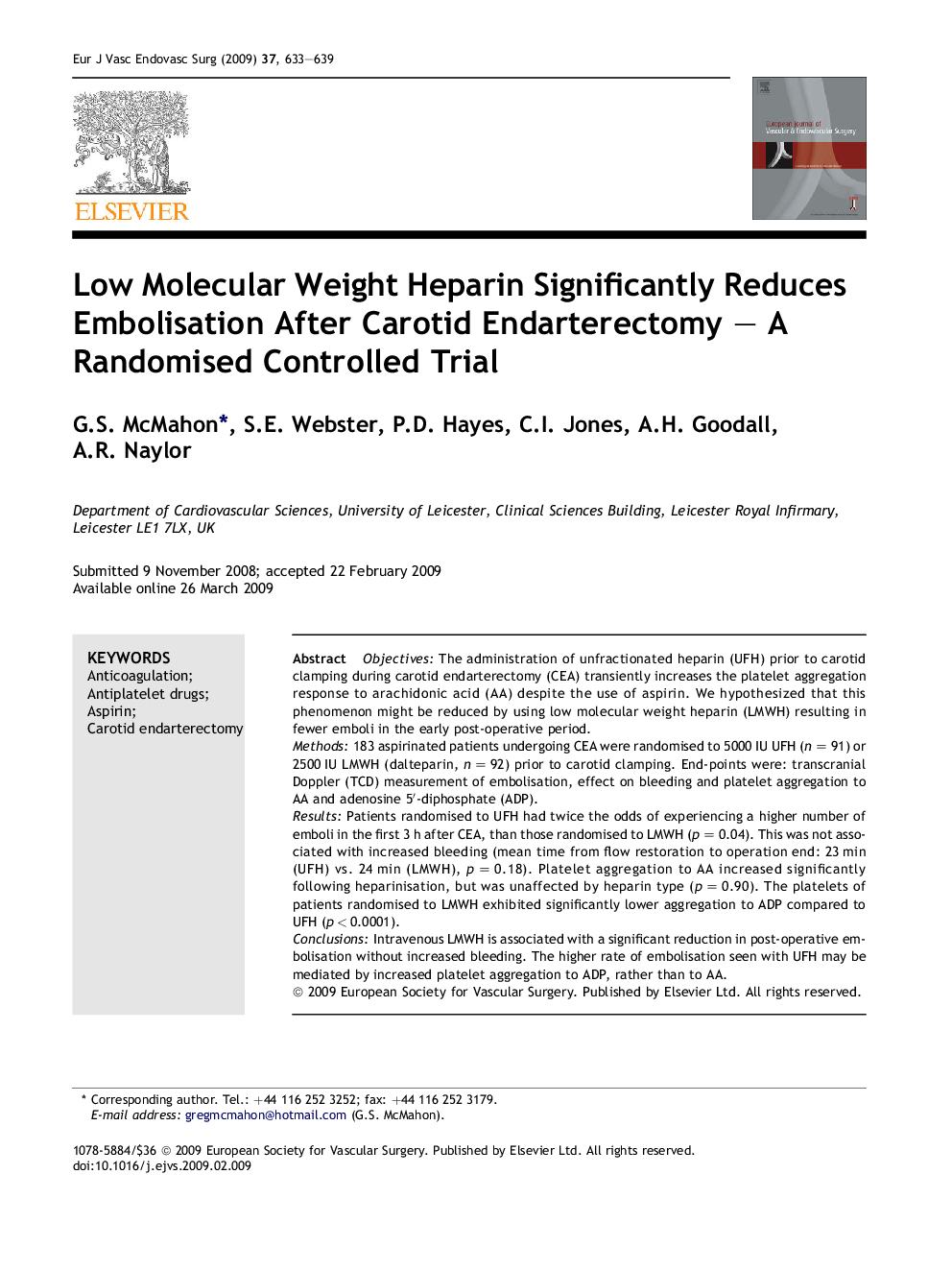| Article ID | Journal | Published Year | Pages | File Type |
|---|---|---|---|---|
| 2913587 | European Journal of Vascular and Endovascular Surgery | 2009 | 7 Pages |
ObjectivesThe administration of unfractionated heparin (UFH) prior to carotid clamping during carotid endarterectomy (CEA) transiently increases the platelet aggregation response to arachidonic acid (AA) despite the use of aspirin. We hypothesized that this phenomenon might be reduced by using low molecular weight heparin (LMWH) resulting in fewer emboli in the early post-operative period.Methods183 aspirinated patients undergoing CEA were randomised to 5000 IU UFH (n = 91) or 2500 IU LMWH (dalteparin, n = 92) prior to carotid clamping. End-points were: transcranial Doppler (TCD) measurement of embolisation, effect on bleeding and platelet aggregation to AA and adenosine 5′-diphosphate (ADP).ResultsPatients randomised to UFH had twice the odds of experiencing a higher number of emboli in the first 3 h after CEA, than those randomised to LMWH (p = 0.04). This was not associated with increased bleeding (mean time from flow restoration to operation end: 23 min (UFH) vs. 24 min (LMWH), p = 0.18). Platelet aggregation to AA increased significantly following heparinisation, but was unaffected by heparin type (p = 0.90). The platelets of patients randomised to LMWH exhibited significantly lower aggregation to ADP compared to UFH (p < 0.0001).ConclusionsIntravenous LMWH is associated with a significant reduction in post-operative embolisation without increased bleeding. The higher rate of embolisation seen with UFH may be mediated by increased platelet aggregation to ADP, rather than to AA.
